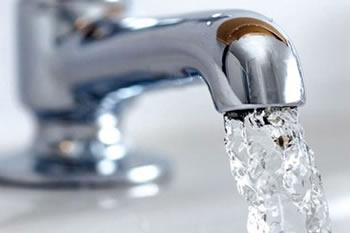Water Analysis & Testing CT
“Why should I have my CT well analyzed? We’ve been drinking this for YEARS!”
 Most Connecticut residents simply do not know if their well contains bacteria or not. “We’ve been drinking that water for years and have never had a sick day in our lives.” Well, that may be true. People can sometimes develop immunities to certain strains of coliform and may never have a problem.
Most Connecticut residents simply do not know if their well contains bacteria or not. “We’ve been drinking that water for years and have never had a sick day in our lives.” Well, that may be true. People can sometimes develop immunities to certain strains of coliform and may never have a problem.
What you need to remember as a Connecticut resident, is that the human body is not a static system. Resistances to certain substances or organisms increase and decrease over time, immune systems become compromised, or family members move into the house (ie. marriage, birth, adoption, death of a spouse, etc) permanently or even for a short weekend visit. Any one of these can mean that someone who does not have the immunities that you have may come into contact with organisms that can cause significant gastrointestinal distress – enough to warrant hospitalization.
A simple, test can help you with that.
We come to your home or business to collect a sample to be analyzed for total coliform and E.coli bacteria. This is a presence / absence test that will statistically assure you that your well is free of coliform contamination. In most cases a full water potability test is performed, especially if you need the results for a certificate of occupancy (CO), new home construction, a mortgage or mortgage refinance both conventional as well as FHA or VA.
The water Connecticut potability test includes: coliform bacteria, e. coli bacteria, nitrates, nitrites, color, odor, pH, turbidity, chloride, hardness, sulfates, iron, manganese, sodium, and total chlorine
Your test results are available electronically in a pdf format as well as in hard copy form. All water testing results are Connecticut state certified.
When you test your water for coliform, you are actually testing to see if your CT well has been in contact with surface water. If your well has had surface water contamination, then it is likely that you may also have other organisms contaminating your water source.
A positive total coliform/E.coli indicates the source of your water contamination could have been be a single incident, such as a pump replacement or well repair or a flood that inundated the wellhead, or it could be a continuous contamination such as rock fractures, poor grouting around the well, a sinkhole, etc.
For this reason, the EPA recommends that your have a routine annual analysis for total coliform bacteria, nitrates, total dissolved solids (TDS) and pH. Regular testing establishes a record of water quality that is useful in solving current or future problems with your home or business.
"Water Analysis near me in CT?" Yes. Schedule your appointment now. Call today 888-558-1574. ~~~ Thank you.







